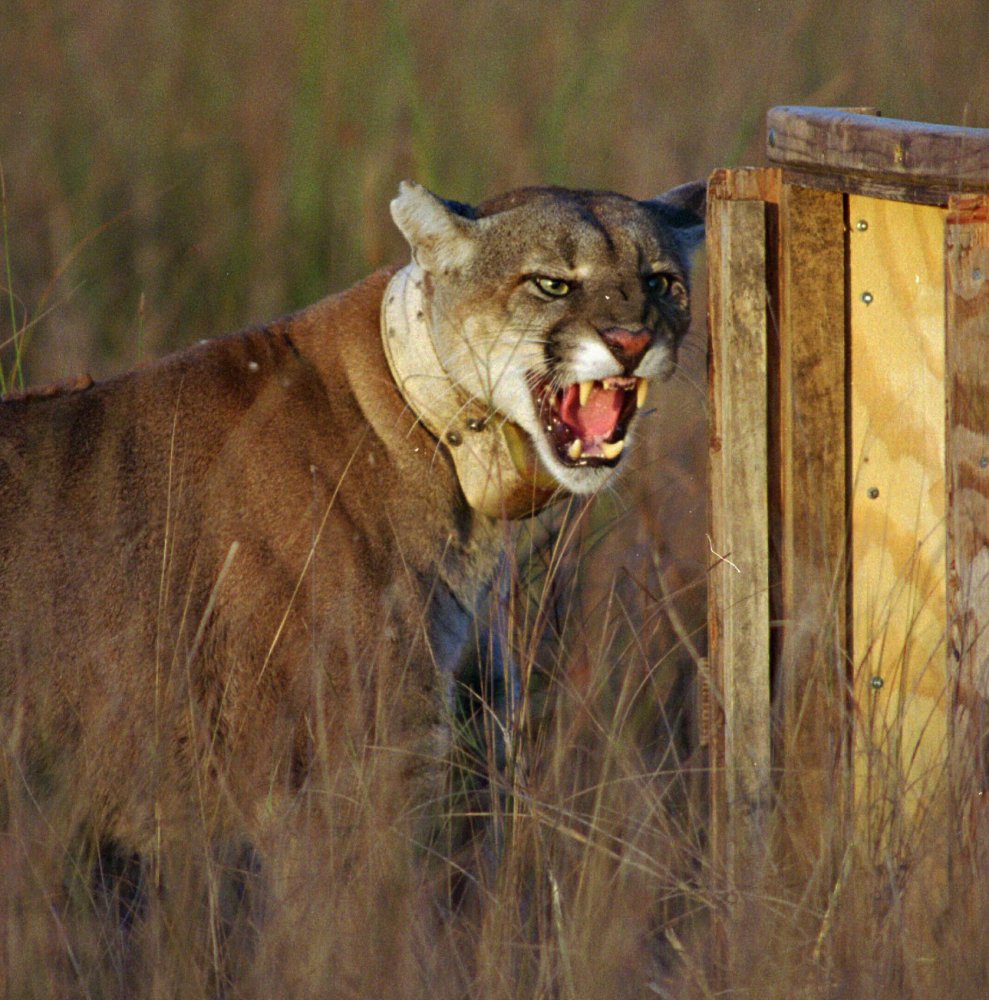IMMOKALEE, Fla. — Since Florida’s frontier days when cattlemen drove their herds through the state’s vast fields and forests, ranchers and native panthers have been natural enemies. The ranchers seek to nurture and protect their calves, while the panthers see them as prey.
Human development won the battle, driving the large, tawny cats to the brink of extinction before successful efforts to restore them began decades ago.
But with Florida’s panther population recovering, some ranchers complain the protected predators are once again killing their calves.
Now, university research supports that claim. A University of Florida researcher hired by federal wildlife officials has found that panthers are killing calves in an area where the predatory felines are thriving.
The research marks the first step toward the U.S. Fish and Wildlife Service considering a program that would pay ranchers for preserving acres of panther habitat, instead of undertaking the impossible task of verifying every kill.
“Ranchers will tell you that they suspected panthers were killing their calves, although no one knows how many they’re losing,” said Caitlin Jacobs, the university researcher who staked out a ranch for the better part of two years. “It’s hard to find the calves – when panthers kill they drag the prey into the forest and cover it with brush to hide them from scavengers.”
It’s believed that there were as few as 20 panthers in the 1990s – down from an 1800’s high of 1,300 – but the population has rebounded thanks to conservation efforts.
Ranchers had been telling federal and state wildlife officials about the problem for years, but lacked scientific evidence. Calves are also commonly killed by coyotes and vultures.
In the past, ranchers simply would have shot the panthers, but because the state’s 100 to 180 panthers are legally protected under the Endangered Species Act, they have few options.
Copy the Story LinkSend questions/comments to the editors.



Success. Please wait for the page to reload. If the page does not reload within 5 seconds, please refresh the page.
Enter your email and password to access comments.
Hi, to comment on stories you must . This profile is in addition to your subscription and website login.
Already have a commenting profile? .
Invalid username/password.
Please check your email to confirm and complete your registration.
Only subscribers are eligible to post comments. Please subscribe or login first for digital access. Here’s why.
Use the form below to reset your password. When you've submitted your account email, we will send an email with a reset code.